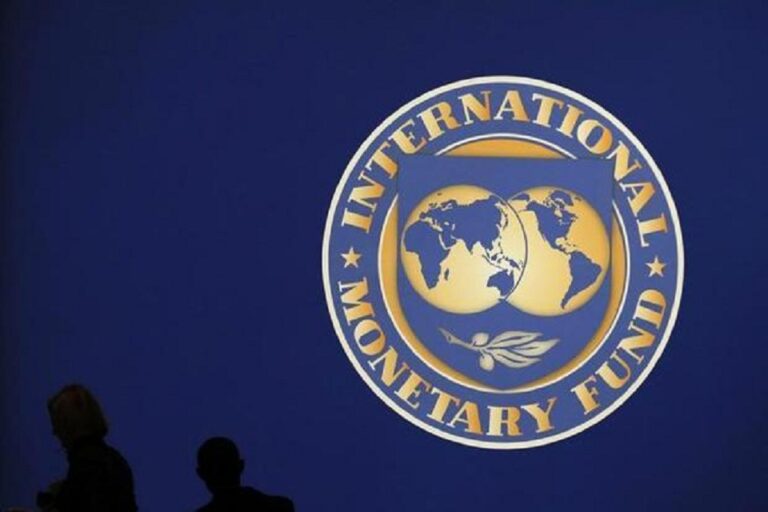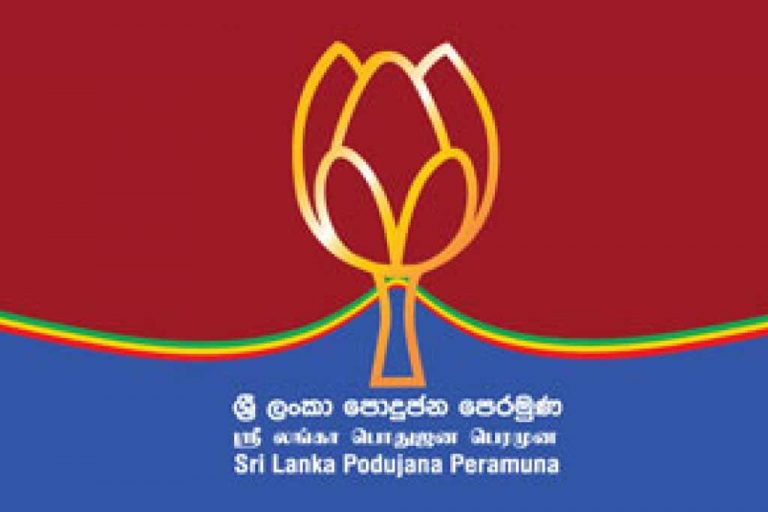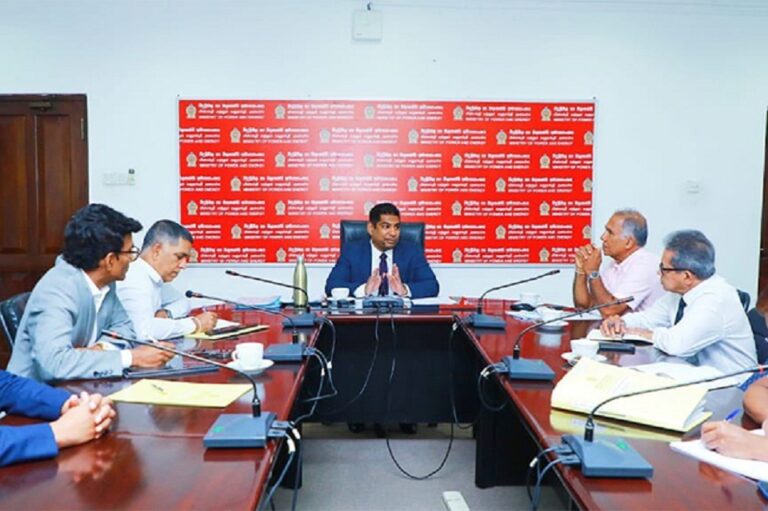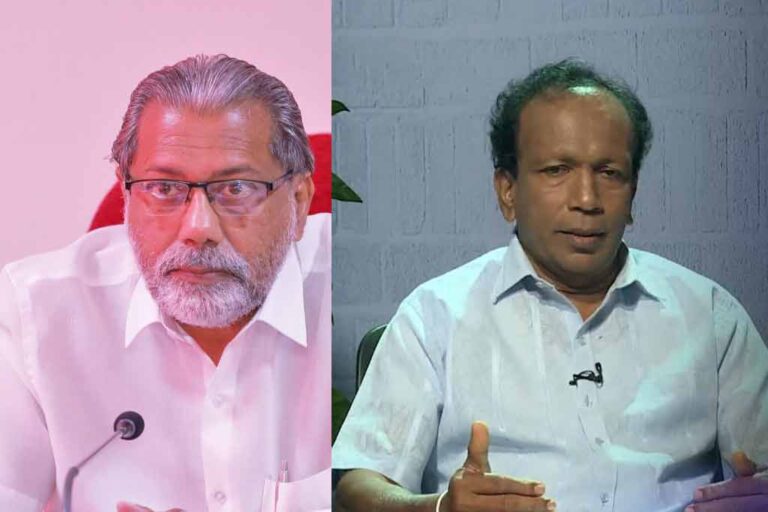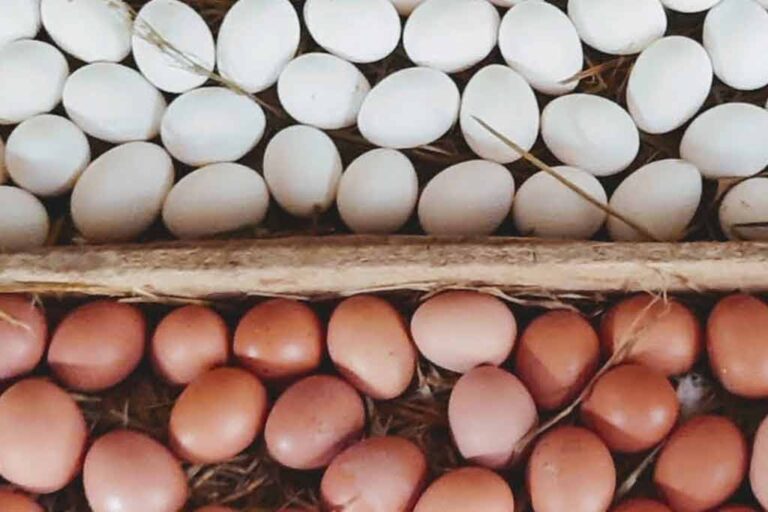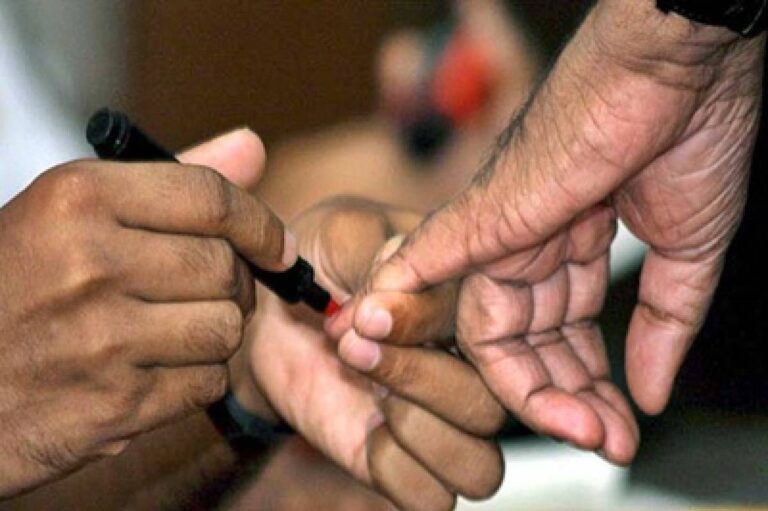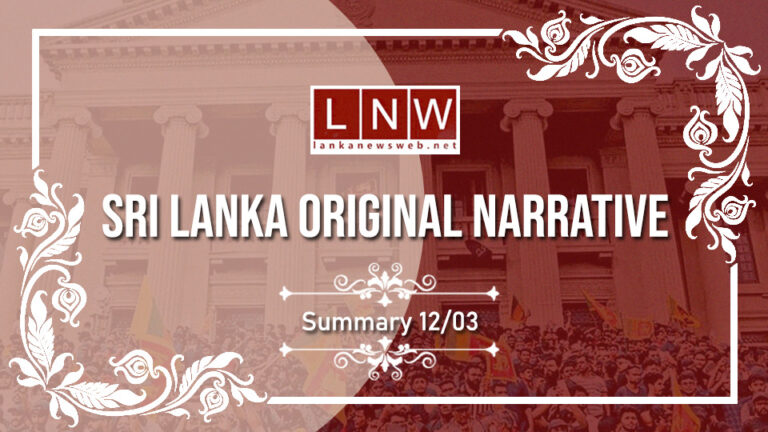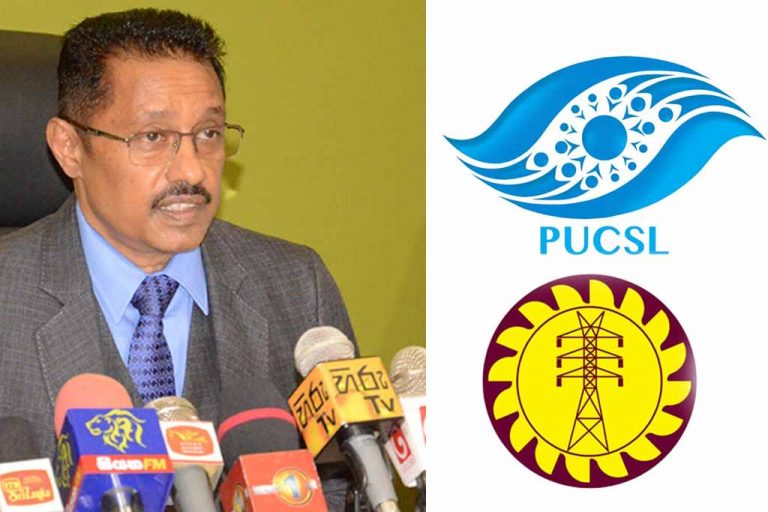Sri Lanka business heads are looking at pros and cons in order to make sustainable business plans considering the economic situation under barricade, the latest edition of leading business magazine LMD observed.
Sri Lanka’s economic confidence was around the same levels in February 2023 as in October 2022, while government approval was also unchanged at a 10 percent, level, a survey has found.
A “Mood of the Nation” poll was conducted in early February 2023 by Verité Research, a Colombo-based think tank among a sample of 1,000 respondents found that economic confidence was a negative -78, the same as October 2022, when it recovered from June low.
In February 2023 0.3 percent had rated the economic conditions as excellent, 6.0 percent rated it as good; and 6.3 percent had rated it as getting better.
Sri Lanka’s external sector had stabilized by February 2023, with some prices falling absolutely, but taxes have been raised and utility prices are up. Manufacturing and retail is also under pressure
NielsenIQ’s Director – Consumer Insights Therica Miyanadeniya notes in the magazine: “The optimism that was evident towards the end of last year seems to be waning. Once again riding high as the most pressing national issue is the economy.
” LMD reports that a notable majority (77%) of executives responding to the unique LMD-NielsenIQ Business Confidence Index (BCI) monthly survey believe the economy “will get worse” in the 12 months ahead. The poll was carried out in the first week of February, a spokesperson for LMD claimed
The magazine states: “The outcome of the February poll is a reflection of what Miyanadeniya alludes to, as this degree of pessimism was expressed by only two-thirds of those who spoke to the pollsters in the preceding month.”
“It is also the highest point of economic pessimism in the last six months,” it adds. LMD also reports that “pessimism continues to be the overarching disposition in business circles,” as regards expectations regarding sales volumes in the 12 months ahead with 46% of poll respondents fearing the numbers will “get worse”
“Executive opinion in regard to sales volumes compared to the same time last year has also waned considerably with a mere 12% saying they have recorded higher numbers. And more than two-thirds (68%) now say their numbers have fallen, compared to 56% a month ago.
Media Services, LMD’s publisher, says the latest edition of the magazine has been released. Its digital edition is also available on WhatsApp and the publisher’s social media platforms.
The magazine’s Cover Story features interviews with six leading business people representing the export sector with the forex crunch at the centre of LMD’s focus.
Sri Lanka business community sentiment on the economy under siege : Survey
SL’s creditors to enter consensus on common framework to get IMF EFF
Sri Lanka is set to secure financing support from the IMF after the fund’s Executive Board fixed a date of 20 March to review the US$2.9 billion staff-level agreement that the country signed with the IMF in September 2022.
IMF funding should improve Sri Lanka’s external liquidity, but the timing of any debt restructuring agreement with official and private creditors remains uncertain.
The announcement of a date for the Executive Board review was an indication that the IMF regards the financing assurances it has received from key official creditors as sufficiently credible to move forward, finance ministry sources revealed.
Sri Lanka’s president Ranil Wickremasinghe on 7 March indicated that China had provided its support, following earlier assurances from India and Paris Club official creditors.
The president also indicated that Sri Lanka had completed all prior actions required under the IMF programme, although the IMF Board will make its own assessment on this in deciding whether to approve the package.
Board approval of the programme would release IMF funding and should unlock additional financing from multilateral creditors.
This would bolster official foreign-exchange reserves, which have already risen 30% from their trough in October 2022. Nonetheless, reserves remain very low, at US$2.2 billion in February, equivalent to around one month of imports.
Two groups of private creditors are now ready to hold international sovereign bond (ISB) debt restructuring negotiations with Sri Lankan authorities, as the Finance Ministry and the Central Bank have almost completed their debt treatment discussions with bilateral creditors.
Although the total government external debt amounts to US$ 36.73 billion as at end of 2022, only bilateral debt is considered at present for the debt restructuring process to obtain the $2.9 billion International Monetary Fund (IMF) Extended Fund Facility.
The IMF called for ‘timely and orderly processes’ under a common framework with regards to Sri Lanka’s debt resolution. The island nation faced a severe economic crisis which resulted in high debt.
Sri Lanka has already fulfilled filled around 15 commitments made to IMF and put forward a debt treatment from work with proposal of immediately restructuring bilateral debt of US, India ,China ,Japan,and Paris club member and non member countries amounting to US$10.81 billion to gain $2.9 billion IMF bail out loan soon.
A group of overseas private creditors announced recently that it is ready to hold complex debt restructuring talks with Sri Lanka consistent with the IMF programme, Finance ministry sources said.
The total ISB debt stock with arrears as at end of 2022 was $14.286 billion with different maturity periods and varied interest rates, the Ministry’s latest data shows.
It was categorized as commercial debt and most of ISB’s maturity periods will fall on 2024, 2025, 2026, 2027, 2028 and 2029. Each and every ISB has different dates of maturity and varied interest rates.
The only issue at hand is the repayment of $1.25 billion ISB on April 18 this year. The government is servicing other multilateral loans including from the World Bank and ADB amounting to $9.499 billion.
Sri Lanka’s private bondholders have told the IMF that they are prepared to negotiate with Sri Lankan authorities in debt restructuring talks consistent with the parameters of the global lender’s programme.
Powerful civil activist to be appointed as SLPP Chairman?
Colombo (LNW): The Sri Lanka Podujana Peramuna (SLPP) has reportedly paid its attention on appointing a powerful activist from the civil society, who is not a politician, as the Party Chairman.
Party Secretary General MP Sagara Kariyawasam said the demand to appoint a person of such nature as the SLPP Chief is high.
More names have appeared for the post, and the appointment may take place soon, he added.
Princess Cruise Arrives in the island, with nearly 2,000 passengers
Another luxury passenger ship ‘Princess Cruise’ docked at the Colombo yesterday morning (11 March), with nearly 2,000 passengers aboard mainly from the US , the fourth luxury cruise with in around three months from the arrival of the previous cruise liner in the island on November 2022 signaling the revival of the country’s hospitality industry.
Tourism Ministry is planning to promote nautical tourism and the luxury passenger cruise ship arrivals harnessing the potential in the economic Development of Sri Lanka.
All ingredients already provided by nature, it is time, Sri Lanka is to take a special interest in emphasizing that Sri Lanka really concentrate on developing the Nautical Tourism as a special niche in its new phase of Tourism Development”.
Accordingly, the Ministry of Ports, Shipping and Aviation confirmed that the ship arrived yesterday morning, carrying 1,894 tourists and 906 crew members.
A group of 159 tourists who had come aboard the ship have already left the Port, and are scheduled to visit Kandy, Pinnawala, Negombo and Ingiriya.
The 294-metre-long ship belonging to an American company arrived from Thailand and is due to leave for Dubai tonight, the Ministry confirmed.
Meanwhile, the Sri Lanka Tourism Development Authority (SLTDA) stated that nearly 25,000 tourists have arrived in Sri Lanka within the first week of March, while a total of 234,547 tourists have arrived in the island for 2023 thus far.
Accordingly, Sri Lanka saw a total of 24,363 tourists between 01 and 06 March, with a majority of them having been identified as Russian nationals.
Tourism Ministry also explores the possibility of partnering top blue-chip companies to enter the lucrative 40 billion dollar cruise line business that is estimated to carry 22.3 million passengers, with the market growing at 3.2% in volume.
The previous luxury cruise ship, Azamara Quest arrived at the Colombo Port in December 2022 carrying more than 600 passengers, mainly from the US.
Azamara Quest is an R-class cruise ship that entered service for Azamara Cruises on 24 October 2007. She was built in 2000 for Renaissance Cruises as R Seven.
The Azamara Quest carries about 710 passengers (double occupancy) plus 410 crew members (1:2 staff to guest ratio).
Tourism Minister Harin Fernando said that it was “heart-warming” to see the luxury cruise in Colombo.
“Having a cruise ship in the country is similar to having 10 aircraft full of tourists,” the minister said.
Minister Fernando said the country expected two to three more passenger ships “The cruises will build a positive image of the country through word of mouth. That is what the country needs now,” he said.
ADB WB, USAID and JICA support CEB restructure setting up 4 companies
The Asian Development Bank (ADB), World Bank (WB), USAID and JICA have assured their assistance for the restructuring process of the Ceylon Electricity Board (CEB), Power and Energy Minister Kanchana Wijesekara said.
The Minister tweeted that “Progress on the restructuring of CEB was discussed yesterday and these four international agencies have communicated on the assistance they can offer.
Roadmap and timeline will be submitted to the Cabinet. Reforms that can be implemented before the final Act, will be initiated next week”.
Sri Lanka’s Ministry of Power & Energy has held talks on the progress of restructuring the state-run Ceylon Electricity Board (CEB) with a number of multilateral and other development agencies communicating on the assistance they can offer.
Successive governments had tried to introduce power sector reforms following recommendations of international agencies the World Bank (WB), ADB and JICA after conducting comprehensive feasibility studies spending millions of dollars from time to time during the past two decades.
As a last ditch attempt , Energy Ministry has been directed by President Ranil Wickremasinghe to expedite the restructuring process of unbundling the CEB by setting up of state owned companies jointly with the private sector management to take over the generation, transmission, distribution and other functions.
There will be one joint venture each for generation and transmission and three or more for distribution, according to the CEB cabinet memorandum.
It has also been proposed to form separate power generation joint venture companies to undertake functions of the CEB relating to hydro electricity, thermal electricity, coal power and non renewable power generation, distribution, and other activities as well as Lanka Electricity Company (LECO).
These companies will serve as independent power producers (IPP) and will have to sell the energy they generate to the transmission company, along with other IPPs.
On Friday, the Ministry of Power & Energy entered collective agreements with trade unions of the two state-owned enterprises (SOEs) for a 25-percent salary increment every three years minus annual bonuses, allowances and other benefits.
Minister Wijesekara said that the bonuses, allowances and other benefits will not be continued or renewed.
The government will be implementing power sector reforms to restructure Ceylon Electricity Board (CEB) to make it a profitable entity serving the people.
In the first eight months of 2022, the CEB has suffered a loss of Rs 108.6 billion rupees, and It anticipates a loss of RS.108 billion rupees in the fourth quarter despite electricity tariff reforms that were implemented in August, Minister Wijesekera said
Explaining the reasons for the long-running losses of the CEB, the minister noted that a delay in imposing cost-reflective pricing was the main reason for the utility provider to make losses.
He disclosed the CEB achieved an additional income of Rs.15 billion following tariff revisions in August this year.
The CEB with a staff of 23 000 members consisting of over 1400 professionals has become a liability to the government due to its massive losses since 2016 as it has been selling electricity to its consumers below cost price which is around Rs 20 per unit.
CEB has massive hidden costs due to its inefficiencies in supply and administration, including over compensation and overstaffing, which are covered through subsidies by large-scale industrial and commercial clients and government guarantees.
Residents protest the opening of a Cultural Centre by Ministers Vidura Wickramanayake and D.B. Herath (VIDEO)
By: Isuru Parakrama
Colombo (LNW): Residents of Wariyapola, Walpola – Bamunakotuwa area staged a protest against the opening of a Culture Centre by Minister Vidura Wickramanayake and State Minister D.B. Herath.
Booing at the Ministers, the protesters claimed that this Cultural Centre had previously been ‘opened’ by several ministers of government on several occasions.
The Police Riot Control was also deployed over the heated exchange occurred at the scene.
100,000 disposed eggs found in forest reserve!
By: Isuru Parakrama
Colombo (LNW): A huge stock of rotten eggs left in the Mahakumbukkadawala – Walpaluwa reserve has been recovered during a joint operation by the Consumer Affairs Authority (CAA) and the Police yesterday (11).
The stock of rotten eggs was found based on a tip by the residents, and fragments of smashed egg shells were all over the forest floor during the recovery.
Officers of the CAA believe that someone might have brought about 100,000 eggs that were hidden last season to this place after they were rotten.
Date of LG Polls at uncertainty.. again!
By: Isuru Parakrama
Colombo (LNW): The printing of ballot papers for the Local Government Election may further delay in the backdrop where no funds were released to the Department of Government Printing, said Government Printer Gangani Liyanage.
Speaking to media, the Government Printer reminded that although about Rs. 200 million should have been allocated for printing, only Rs. 40 million has received this far, and revealed that the Finance Ministry, despite being informed on March 08 that over Rs. 500 million has been estimated for the printing affairs of the Polls, has made no response whatsoever.
The Department of Government Printing, therefore, is not able to recommence the printing affairs and the portion of Rs. 200 million should be released in this regard, she added, warning that even if the Dept receives the said allocation within next week, it may not be able to hand over the postal ballot papers to the Election Commission before March 20, 2023.
Further strengthening the arguments raised by critics on the government’s alleged attempt to disregard the people’s franchise, the date of holding the Local Government Polls has once again led itself into uncertainty. If the Election Commission fails to receive the postal ballot papers before March 20, the postal voting for the LG Polls may not be held as declared on March 28. Currently, plans are underway to distribute the postal ballot papers to the polling centres from March 21 onwards.
Sri Lanka Original Narrative Summary: 12/03
- Chief Opposition Whip Lakshman Kiriella says the Judiciary may take drastic steps if the Legislature takes action against it re. the order by the Supreme Court to the Finance Secretary to allocate funds for the LG election: MP Rauff Hakeem says this situation would create an unwanted conflict between the Judiciary and the Legislature.
- Bar Association says MP Premnath Dolawatte and State Minister Shehan Semasinghe’s references to an ongoing case in the Supreme Court pertaining to the LG elections constitute an interference with the judicial process and undermine the independence of the Judiciary in Sri Lanka.
- Power and Energy Minister Kanchana Wijesekera says the ADB, World Bank, USAID and JICA have communicated their assistance towards the restructuring of the CEB: also says the reforms that can be implemented before the final Act is passed, will be initiated next week.
- Residents protest the opening of a Cultural Centre by Minister Vidura Wickramanayake and State Minister D B Herath: claim the cultural centre had been previously “opened” by several ministers on several occasions.
- PUC Chairman Janaka Ratnayake files FR petition in the Supreme Court against the recent 66% electricity tariff hike: says the purported approval given by the Commission was unlawful.
- Govt decides to penalise those undergraduates who engage in anti-Govt protests and riots, by not offering them state sector jobs in the future: Govt to take steps to identify and maintain records of those who are engaged in “unnecessary” anti-Govt protests.
- India’s Congress Party accuses the Central Govt of lobbying in favour of the Adani Group for projects in Sri Lanka: recently, Sri Lanka’s Foreign Minister Ali Sabry said the Sri Lankan Govt views business with the Adani Group as being similar to “Govt-to-Govt” business.
- US Embassy in Sri Lanka declines to comment on PHU Leader and MP Udaya Gammanpila’s statement regarding CIA Director William Joseph Burns’ alleged top secret visit to Colombo on 14th February.
- GMOA spokesman Dr Chamil Wijesinghe says the Govt’s actions were forcing thousands of health professionals out of the country: warns it would be impossible to manage the healthcare sector with the on-going exodus of health professionals: laments the Govt doesn’t care.
- Sri Lanka Cricket targets July & August to conduct the 4th season of the Lanka Premier League: says the intention is to make that period to become the permanent window for the tournament.
PUCSL Chief files FR petition over electricity tariff hike
Colombo (LNW): The Chairman of the Public Utilities Commission of Sri Lanka (PUCSL), Mr. Janaka Ratnayake, has filed a Fundamental Rights (FR) Application challenging the February electricity tariff hike. The Application is both in his capacity as an electricity consumer and in the public interest, especially in the interest of those falling within the lowest brackets units of electricity consumed, who are hardest hit by the tariff hike. The basis of the challenge is twofold.
On the one hand, Mr. Ratnayake has challenged the process by which the PUCSL has purportedly approved the tariff hike proposed by the CEB contrary to established legal procedures. The approval of the PUCSL is a necessary requirement for a change in tariffs, and Mr. Ratnayake says that there was no such lawful approval of the Commission given to the proposal. he claims that the purported approval given by the Commission is an unlawful decision of three of the Members and not a decision of the Commission.
The second basis of the challenge is that the PUCSL is duty-bound to ensure that the interests of all citizens are met when approving a change in tariffs. A tariff that disproportionately affects those within lower usage brackets would put those at the lowest income levels at risk of ‘deelectrification,’ making even the limited units of electricity consumed by them for basic necessities inaccessible.
Ratnayake explains in his Petition that the most economically generated hydropower-based electricity alone (approximately 4,400 GWh) would be more than sufficient to service all domestic consumers within the 0-30, 31-60 and 61-90 bands, with a significant portion of such electricity remaining for distribution among other categories.
Thus, it is unreasonable that consumers within these brackets are made to pay the price of electricity generated at a much higher cost.


